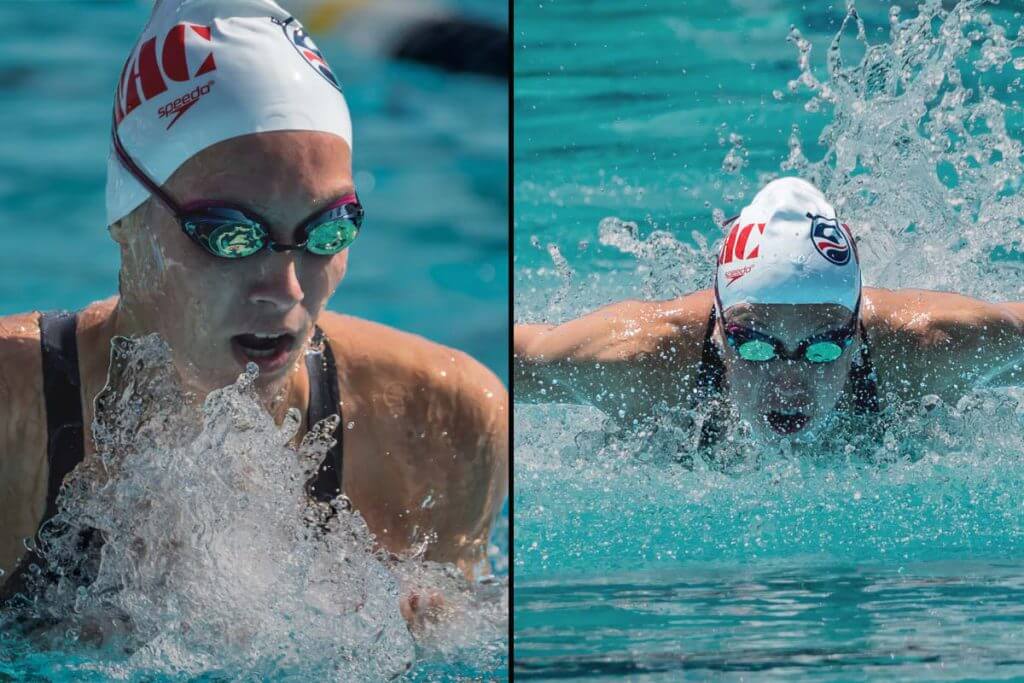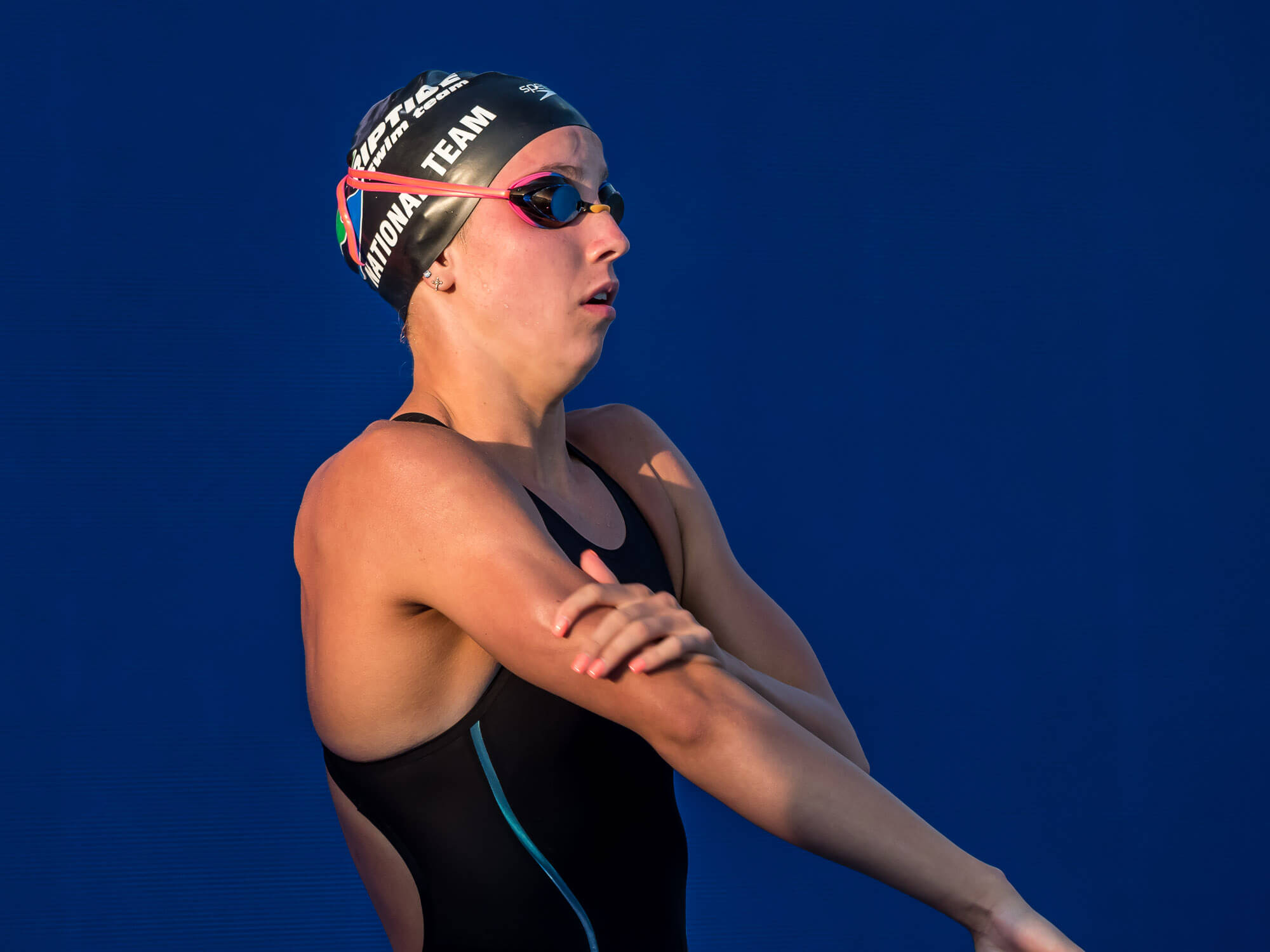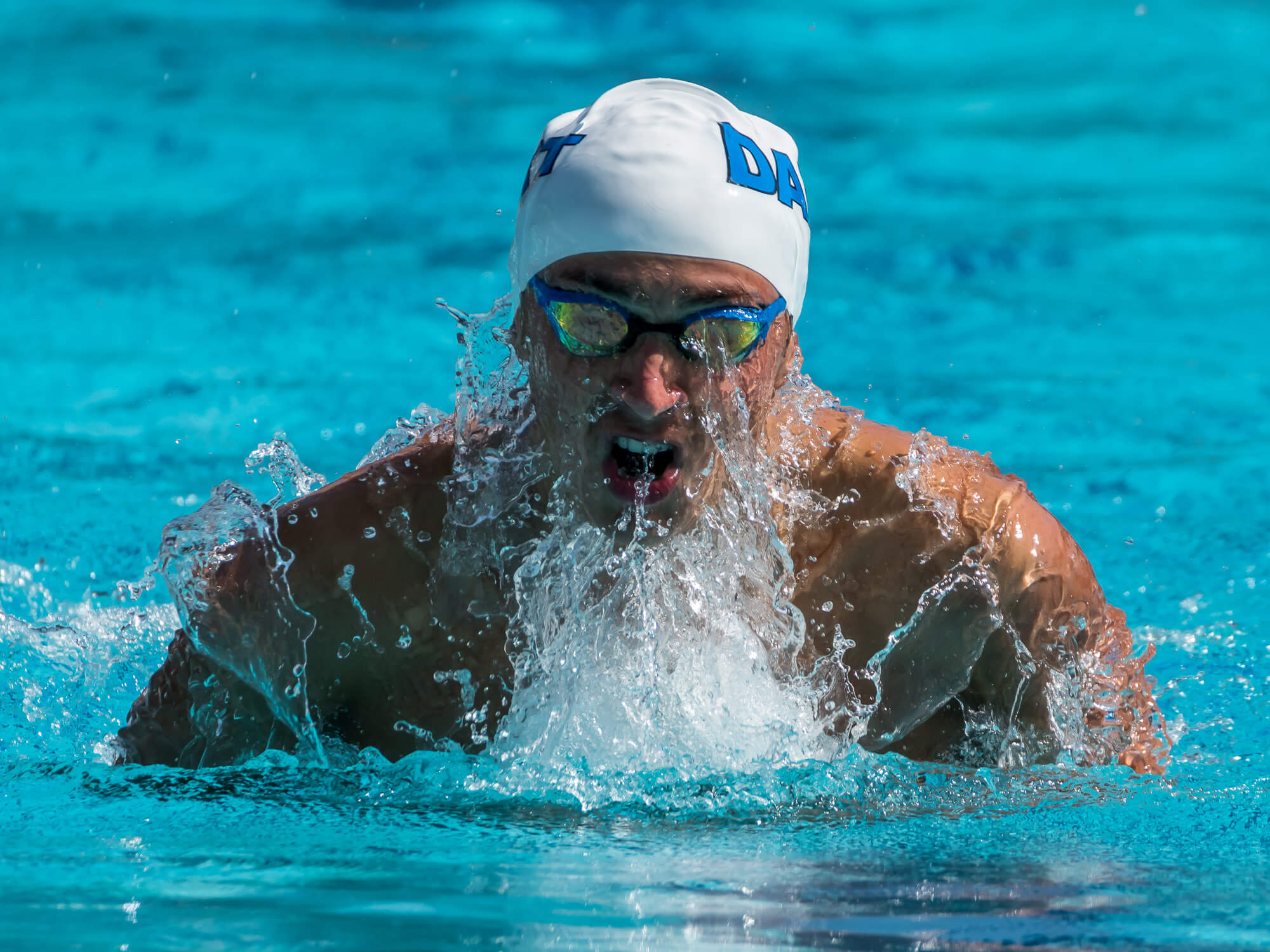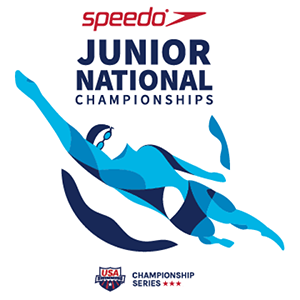The Walsh Sisters and the Standout Swims of Junior Nationals

Editorial content for the 2019 USA Swimming Junior National Championships coverage is sponsored by FORM Swim Goggles. See full event coverage.
Follow FORM on Instagram at @FORMSwim #swimwithform

By David Rieder.
A 17-year-old girl, a high school junior, swam a 1:53.69 in the 200 IM. With that time, she would have placed sixth in the event at last year’s NCAA championships, and she now ranks 19th all-time in the event. Oh, and it wasn’t even the most impressive swim by a member of her family that night.
The first of these swimmers is Alex Walsh, well-known at this point after swimming in the 200 IM final at summer Nationals each of the past two years. The other is her 15-year-old sister Gretchen, who qualified for the 2016 Olympic Trials as a 13-year-old and made her first Nationals final in this year in the 100 free, finishing eighth.
This weekend, at the eastern edition of Junior Nationals in Greensboro, N.C., Gretchen upstaged her older sister during Nashville Aquatic Club’s 4×100 medley relay at the end of the Thursday night session. Gretchen anchored in 46.78, which would have been the fourth-fastest freestyle split at the entire NCAA championships last year.
Check the results: Only Simone Manuel, Abbey Weitzeil and Mallory Comerford were faster. Two of those three have Olympic gold medals, and the other was fourth in the 100 free at the 2017 World Championships. Go back another year, and you will find only two others, both Olympic medalists (Lia Neal and Chantal Van Landeghem) who beat Gretchen Walsh’s split.
Walsh wouldn’t get close to that time in the individual 100 free a few days later, but she still won that event in 47.79. She also won the 50 free in 21.82—which would have made the A-final at last year’s NCAA championships—and posted a 21.52 relay split. And yes, she is a freshman in high school.
Alex, meanwhile, finished the weekend with three individual wins. In addition to the 200 IM, she posted a 50.88 to win the 100 back and a 2:06.03 in the 200 breast. Looking to the age-inclusive all-time list, Alex ranks 23rd all-time in the 100 back and 20th in the 200 breast.
From a swimming perspective, the sisters are almost nothing alike, with Gretchen almost exclusively excelling in freestyle and Walsh pulling off the rare backstroke-breaststroke combination to great success. Both should get an opportunity to swim at next year’s Pan American Games in Peru, should they choose to accept it.
When it comes to No. 1 national teams—including the Olympics in 2020—Gretchen’s path to that point is clearer, with six swimmers likely to be taken to Tokyo for the 4×100 free relay. Alex faces a tougher test in the extremely deep 200 IM, by far her best event to long course at this point.
Meanwhile, around the pool…
For two years, the world has seen what Regan Smith can do in the backstroke events: a World Championship final at 15, several world junior records, a Pan Pacs bronze medal at 16. She’s the 14th-fastest woman in history in the 100 back and the 15th-fastest in the 200-meter event.

Regan Smith — Photo Courtesy: Peter H. Bick
She can swim some butterfly, too—hence, her third-place finish in the 200 fly at Nationals. She will finish 2018 as the 10th-ranked swimmer in the world in that one. And as we saw this weekend at Junior Nationals West in Austin, Texas, her freestyle isn’t half bad either.
Smith won three individual titles in Austin, with exactly zero of them coming in the backstroke events. In the 500 free, she swam a time of 4:37.10, which would have placed her seventh at last year’s NCAA championships. In the 200 free, her winning time was 1:43.20, bettered by just four women in last year’s NCAA final—Comerford, Siobhan Haughey, Manuel and Katie Drabot. Her freestyle time drops were enormous—more than a second in the 200 and a whopping 4.5 seconds in the 500.
Finally, there was the remarkable 200 fly, where Smith demolished Mary T. Meagher’s 37-year-old National Age Group record with a 1:51.24. She now ranks seventh all-time in the event, and only one swimmer (Ella Eastin) swam faster at last year’s NCAA championships.
Not bad for one of the best backstrokers in the world.
*Speaking of backstroke, Katharine Berkoff posted a huge weekend at the Austin meet, winning both backstroke events in Smith’s absence. Her times were 50.72 in the 100 back and 1:50.16 in the 200, both of which would have placed in the A-final at last year’s NCAA championships. Berkoff recently committed to NC State, a program that will have a hole in the backstroke events following Elise Haan’s graduation this spring.
The daughter of two-time 100 back Olympic medalist Dave Berkoff, Katharine has posted some major time drops over the past few years. Over the past three seasons, her short course times have dropped from 52.65 to 51.93 to 50.72 in the 100 back and 1:53.64 to 1:51.40 to 1:50.16 in the 200. In long course, she improved from 1:01.55 and 2:13.86 in 2017 to 59.59 and 2:09.84 in 2018.
*A quick scan of the University of Georgia team record book shows that no Bulldog has ever broken 59 in the women’s 100 breast. Kristy Kowal still owns that team record at 59.05—and no one has been particularly close since Melanie Margalis graduated in 2014. But one of next year’s incoming freshmen might have something to say about that.
Zoie Hartman swam a 58.94 to win the event at the Austin meet, a time that would have placed fifth at last year’s NCAA championships. She also posted A-final-worthy times of 1:54.62 in the 200 IM and 2:07.52 in the 200 breast, both more than a second under her previous lifetime best
*To this point, the entire column has covered performances from Junior Nationals on the women’s side. That’s largely because no male swimmer this weekend swam a time that would have qualified for an NCAA A-final last year. That’s not because the men’s high school ranks are lacking in swimming talent. Male swimmers just tend to develop at a later age and post larger time drops once they get to college, particularly in short course.
Even Carson Foster and Luca Urlando, elite prospects by anyone’s measuring stick, would not have qualified for championship finals with their times from this weekend. In Greensboro, Foster’s 1:42.52 in the 200 IM would have placed him 12th at last year’s national championships, and his 3:40.86 in the 400 IM would have been good for 13th. His 1:41.20 in the 200 back would have left him out of scoring territory.

Luca Urlando — Photo Courtesy: Peter H. Bick
For Urlando, his 45.62 in the 100 fly and 45.66 in the 100 back—both improvements of more than a second from his previous lifetime bests—would have put him in consolation finals last year. Even Urlando’s 1:40.91 in the 200 fly, which broke a Michael Phelps National Age Group record, would have just missed the A-final at last year’s Nationals.
But Urlando is 16, Foster 17. Urlando is already committed to Georgia for the fall of 2020, and Foster is going to Texas. Just like the Walsh sisters, Smith and plenty of other top performers from the Juniors meets this weekend, we will be seeing more from then.





